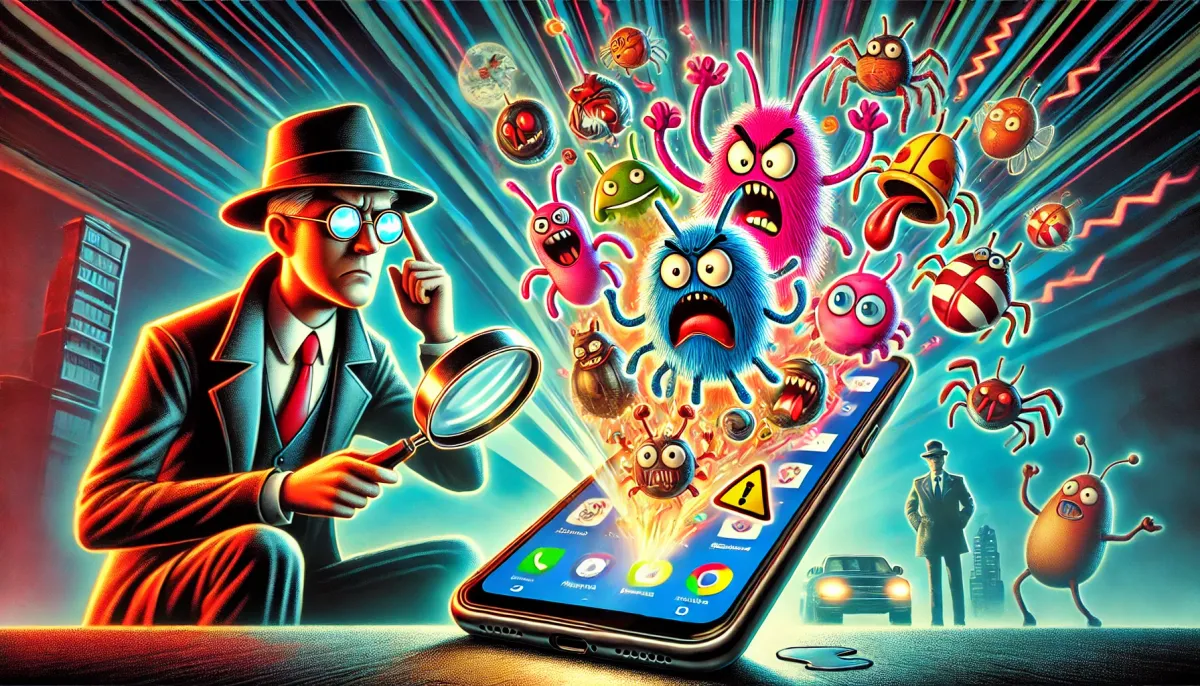Dial M for Malware: A Comedic Odyssey into the Mobile Threat Landscape

Imagine for a moment that your mobile phone isn’t just your digital Swiss Army knife but also a neon-lit, honky-tonk saloon where every shady character in cyberspace is vying to rob you blind. Welcome to the mobile threat landscape, where the Wild West meets Silicon Valley, and every tap, swipe, and notification could be a plot twist in a crime novel you didn’t sign up to star in.
According to a recent Lookout report—think of it as the ominous weather forecast of cybersecurity—cybercriminals are shifting their tactics faster than you can say, “I think I clicked on a bad link.” And what’s in their crosshairs? Your phone. Yes, the same device you just used to argue with strangers on Twitter and Google, “Is it safe to eat expired yogurt?”
Phishing for Fools (and Enterprises)
The report highlights a jaw-dropping 17% quarterly spike in enterprise-focused credential theft and phishing attempts. For context, phishing is when a hacker dangles a too-good-to-be-true email in front of you, and you bite harder than a hungry trout. “Congratulations, you’ve won an all-expenses-paid trip to Cybercrime Island!” You haven’t. But the hackers just won a backstage pass to your life.
Interestingly, iOS users, often smug in their walled garden of tech perfection, were targeted more often than their Android brethren (18.4% vs. 11.4%). Turns out, when it comes to phishing, even Apple can’t keep the worms out.
There’s an App for That (and It’s Malicious)
Malware, the unruly cousin of phishing, has also been busy. More than 106,000 malicious apps were detected. That’s right—more apps than the average person could download in several lifetimes are lurking out there, waiting to pounce. These range from trojans disguised as harmless games to spyware that knows more about your calendar than you do.
The report suggests that nation-state actors from China and Russia are upping their game, with groups like Gamaredon unleashing mobile surveillanceware. Essentially, your phone could be spying on you—not just in the “Mark Zuckerberg knows what I ate for breakfast” way, but in the “Hello, Kremlin? Here’s the spreadsheet of Q3 earnings” way.
Kill Chains and Executive Impersonations: The Plot Thickens
And let’s not forget the pièce de résistance of modern cybercrime: executive impersonation. Here’s the scam in a nutshell: a hacker pretends to be your boss, creates an air of urgency, and counts on your desire to help to trick you into doing something spectacularly dumb, like transferring company funds to an “offshore project.” This tactic combines psychology, seniority, and your general fear of losing your job into one devilishly effective con.
Why Update When You Can Tempt Fate?
Part of the problem, the report notes, is that people refuse to update their devices. Outdated operating systems and unpatched apps are like leaving your front door open and a sign out front saying, “Please rob me, I’m very trusting.” If you’ve ignored that notification to update your phone for the 17th time, congratulations—you’ve just made some cybercriminal’s day.
The Modern Kill Chain: A Cyber-Crime Symphony
The real horror show is the “modern kill chain,” where attackers use mobile devices as a gateway drug to infiltrate enterprise cloud systems. Your phone is the proverbial Trojan Horse, only instead of Greek soldiers, it’s filled with ransomware and credential-stealing malware.
And while this sounds terrifying (and it is), there’s a grimly funny side. The entire mobile threat landscape hinges on human gullibility. For all the advancements in AI, biometrics, and encryption, the weakest link remains us—the people who reuse the password “Password123!” across 15 different apps.
The Takeaway
The Lookout report offers a sobering reminder that we live in a world where your phone can betray you faster than your ex after three margaritas. The solution? Advanced Mobile Threat Defense (MTD) solutions, vigilance, and—most importantly—never clicking on links that promise a free Tesla.
In the meantime, keep your software updated, your apps vetted, and your phishing radar on high alert. And if you get an email claiming to be from your CEO asking for $10,000 in gift cards? Maybe, just maybe, double-check that before you head to Walmart.
After all, in the grand symphony of cybercrime, let’s not be the ones playing the kazoo.
Comments ()